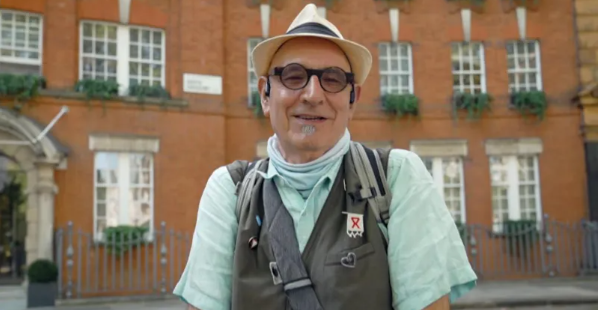SCIENCE

EARLY HIV SURVIVOR REFLECTS ON 40-YEAR JOURNEY AS LONDON STRIVES FOR ZERO NEW CASES BY 2030
Jonathan Blake, believed to be one of the first people in the UK diagnosed with HIV, has spoken about his decades-long fight to live with the virus and the enduring stigma still surrounding it. Diagnosed in 1982 at just 33 years old, Blake says he was told he had “a virus with no cure” and had only months to live.
Now 76, the long-time HIV activist reflected on those early days in a conversation with BBC London, recalling the overwhelming shock of being told he would receive only palliative care. “I'm 33, do I really want to hear about palliative care?” he remembered thinking.
Blake’s diagnosis came at a time when the medical community knew very little about HIV, and effective treatments were non-existent. He became Patient L1 at Middlesex Hospital and was later portrayed in the 2014 film Pride, which chronicled the intersection of LGBTQ+ rights and the miners’ strike of the 1980s.
The Journey from Stigma to Survival
In the early days of the epidemic, Blake recalls feeling like a “leper” with “poisoned blood.” It wasn’t until 2015, when the scientific community confirmed the principle of U=U (Undetectable = Untransmittable), that he says he felt liberated from the fear of infecting others.
“I'm living proof,” Blake said. “I’ve been on effective medication, because we have an amazing NHS. I am so fortunate to have had access to that care.”
While treatments have dramatically improved, with antiretroviral therapy allowing many people with HIV to live long and healthy lives, Blake believes HIV is still a “forgotten epidemic,” largely absent from mainstream discourse due to stigma and lack of awareness.
London’s Goal: Zero New HIV Infections by 2030
Blake’s reflections come amid renewed efforts in London to eliminate new HIV infections, HIV-related stigma, and HIV-related deaths by the end of the decade.
At the launch of a new report titled Getting to Zero by 2030: HIV in London, Blake joined health leaders and campaigners at the future site of a dedicated HIV/AIDS memorial in Fitzrovia. The initiative aligns with the Fast-Track Cities Declaration, signed in 2018 by the Mayor of London, NHS England, and other key stakeholders.
However, progress has been mixed. The London Assembly Health Committee report notes that although the city remains a global leader in HIV prevention, new diagnoses have begun to rise again since 2020. In 2023, 107,949 people received HIV care in the UK—an increase of 27% over the past decade.
Chair of the Health Committee, Krupesh Hirani, acknowledged the challenge: “London is a long way off reaching its 2030 target. We would like to see the mayor take further action.”
Recommendations and Remembrance
The report called for expanded HIV testing, improved access to PrEP (Pre-Exposure Prophylaxis), and wider promotion of the HIV Confident charter among employers, councils, and healthcare providers. It also urged the Mayor to ensure completion of the HIV/AIDS memorial by the end of 2027.
In December 2023, Mayor Sadiq Khan announced £130,000 in funding for the memorial through the Commission for Diversity in the Public Realm. The memorial, designed as a felled tree, is intended as a space for reflection, education, and remembrance.
“This memorial will mean that everyone who lost their life had meaning,” said Mzz Kimberley (Kim Tatum), ambassador for Aids Memory UK.
Blake, who has lost countless friends to the virus, said the memorial represents more than remembrance—it’s about building community. “I am so proud to be part of this HIV community,” he said. “Some of the losses still hurt. But this helps create a sense of belonging, a space to grieve, and a way to honour their lives.”
As London continues its campaign toward zero new HIV infections by 2030, voices like Jonathan Blake’s remain a poignant reminder of how far the world has come—and how far it still has to go.
"This represents a significant development in our ongoing coverage of current events."— Editorial Board









